Filter by
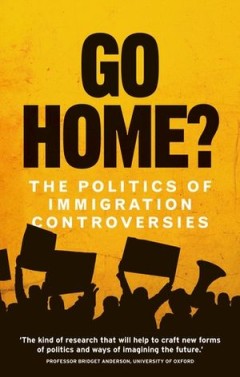
Go home? the politics of immigration controversies
In July 2013, the UK government arranged for a van to drive through parts of London carrying the message ‘In the UK illegally? GO HOME or face arrest.’ The vans were short-lived, but they were part of an ongoing trend in government-sponsored communication designed to demonstrate control and toughness around immigration. This book explores the effects of such performances of toughness: on po…
- Edition
- 1
- ISBN/ISSN
- 9781526117946
- Collation
- -
- Series Title
- -
- Call Number
- -
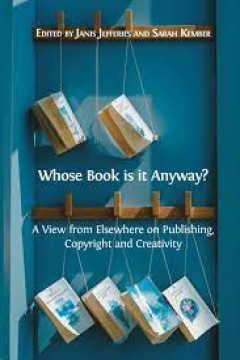
Whose Book Is it Anyway? : A View from Elsewhere on Publishing, Copyright and…
Whose Book is it Anyway? is a provocative collection of essays that opens out the copyright debate to questions of open access, ethics, and creativity. It includes views – such as artist’s perspectives, writer’s perspectives, feminist, and international perspectives – that are too often marginalized or elided altogether. The diverse range of contributors take various approaches, from t…
- Edition
- -
- ISBN/ISSN
- 9781783746507
- Collation
- 458 halaman
- Series Title
- -
- Call Number
- 808.84 JEF w
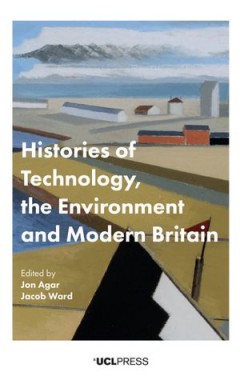
Histories of technology, the Environment and Modern Britain
Histories of Technology, the Environment and Modern Britain brings together historians with a wide range of interests to take a uniquely wide-lens view of how technology and the environment have been intimately and irreversibly entangled in Britain over the last 300 years. It combines, for the first time, two perspectives with much to say about Britain since the industrial revolution: the histo…
- Edition
- -
- ISBN/ISSN
- 9781911576570
- Collation
- -
- Series Title
- -
- Call Number
- 900 HIS h
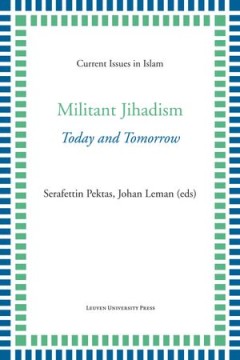
Militant Jihadism: Today and Tomorrow
Jihadist militants keep being a global threat. Many observers suggest that a transformation is likely to happen in their organisation, operation, mobilisation, and recruitment strategies, particularly after the territorial decline of the “Caliphate” of the “Islamic State.” This volume explores different aspects of the future trajectories of militant jihadism and the prospective transfor…
- Edition
- Vol. 6.0
- ISBN/ISSN
- 9789461663023
- Collation
- -
- Series Title
- -
- Call Number
- 297.46 MIL m
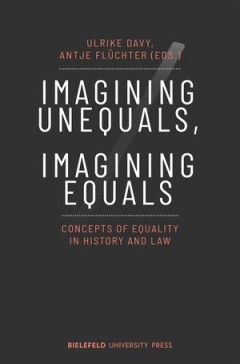
Imagining Unequals, Imagining Equals: Concepts of Equality in History and Law
Why did »equality« become prominent in European societies based on hierarchy during the Enlightenment? What does »equality« imply for societies, politics, or legal systems? The contributors to this volume draw on various historical case studies, from visionary practices in revolutionary France and the collection of data on the poor in 19th-century Germany, to claims raised under the minorit…
- Edition
- -
- ISBN/ISSN
- 9783839458877
- Collation
- -
- Series Title
- -
- Call Number
- 900 IMA i
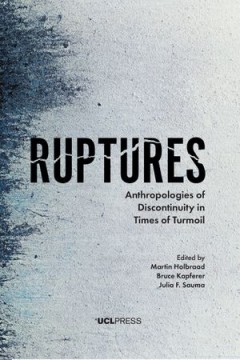
Ruptures
Ruptures brings together leading and emerging international anthropologists to explore the concept of ‘rupture’. Understood as radical and often forceful forms of discontinuity, rupture is the active ingredient of the current sense of a world in turmoil, lying at the heart of some of the most defining experiences of our time: the rise of populist politics, the corollary impulse towards prot…
- Edition
- -
- ISBN/ISSN
- 9781787356184
- Collation
- -
- Series Title
- -
- Call Number
- 808.84 RUP r
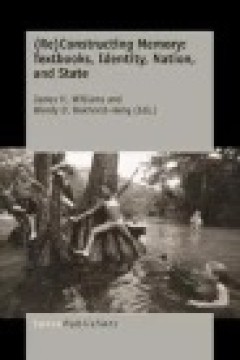
(Re)Constructing Memory: Textbooks, Identity, Nation, and State
This book engages readers in thirteen conversations presented by authors from around the world regarding the role that textbooks play in helping readers imagine membership in the nation. Authors’ voices come from a variety of contexts – some historical, some contemporary, some providing analyses over time. But they all consider the changing portrayal of diversity, belonging and exclusion in…
- Edition
- -
- ISBN/ISSN
- 9789463005098
- Collation
- -
- Series Title
- -
- Call Number
- 301 CON c
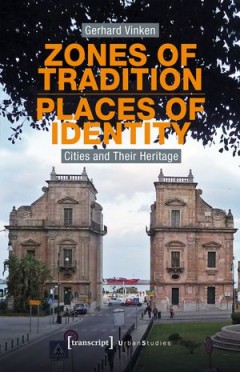
Zones of Tradition - Places of Identity: Cities and Their Heritage
What is the heritage of our cities? Which are the monuments, places, and spaces in which it accumulates, and by which practices is it formed, handed down, appropriated? Gerhard Vinken takes the readers to twelve cities on three continents and analyses the diverse and contradictory heritage formations that have had a lasting impact on urban life. The vitality of urban heritage, as these vivid an…
- Edition
- -
- ISBN/ISSN
- 9783839454466
- Collation
- -
- Series Title
- -
- Call Number
- 307.2 VIN z
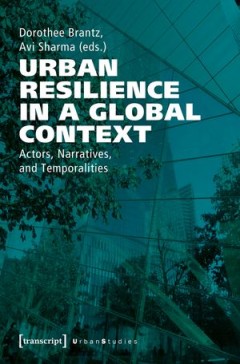
Urban Resilience in a Global Context: Actors, Narratives, and Temporalities
Urban Resilience is seen by many as a tool to mitigate harm in times of extreme social, political, financial, and environmental stress. Despite its widespread usage, however, resilience is used in different ways by policy makers, activists, academics, and practitioners. Some see it as a key to unlocking a more stable and secure urban future in times of extreme global insecurity; for others, it …
- Edition
- -
- ISBN/ISSN
- 9783839450185
- Collation
- -
- Series Title
- -
- Call Number
- 307.2 URB u
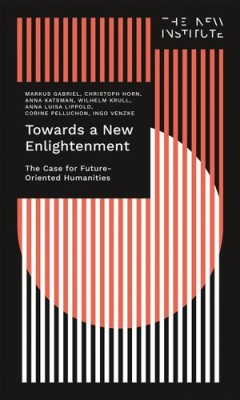
Towards a New Enlightenment - The Case for Future-Oriented Humanities
What role can the humanities play in shaping our common future? What are the values that guide us in the 21st century? How can we unleash the potential the humanities offer in a time of multiple crises? This volume tackles some of these fundamental questions, acknowledging and developing the changing role of academic discourse in a turbulent world. This timely book argues that the humanities en…
- Edition
- -
- ISBN/ISSN
- 9783839465707
- Collation
- -
- Series Title
- -
- Call Number
- 301 TOW t
 Computer Science, Information & General Works
Computer Science, Information & General Works  Philosophy & Psychology
Philosophy & Psychology  Religion
Religion  Social Sciences
Social Sciences  Language
Language  Pure Science
Pure Science  Applied Sciences
Applied Sciences  Art & Recreation
Art & Recreation  Literature
Literature  History & Geography
History & Geography